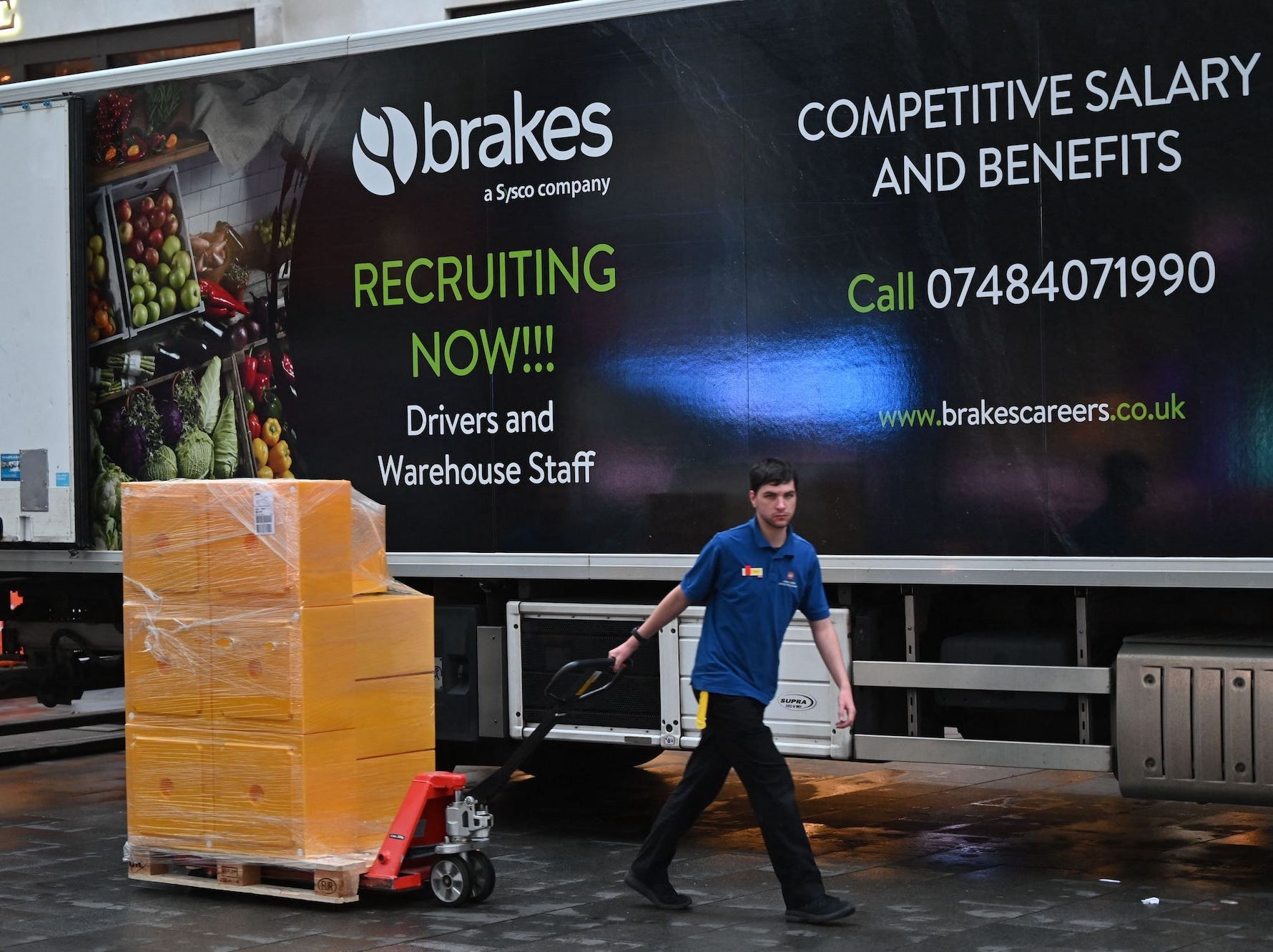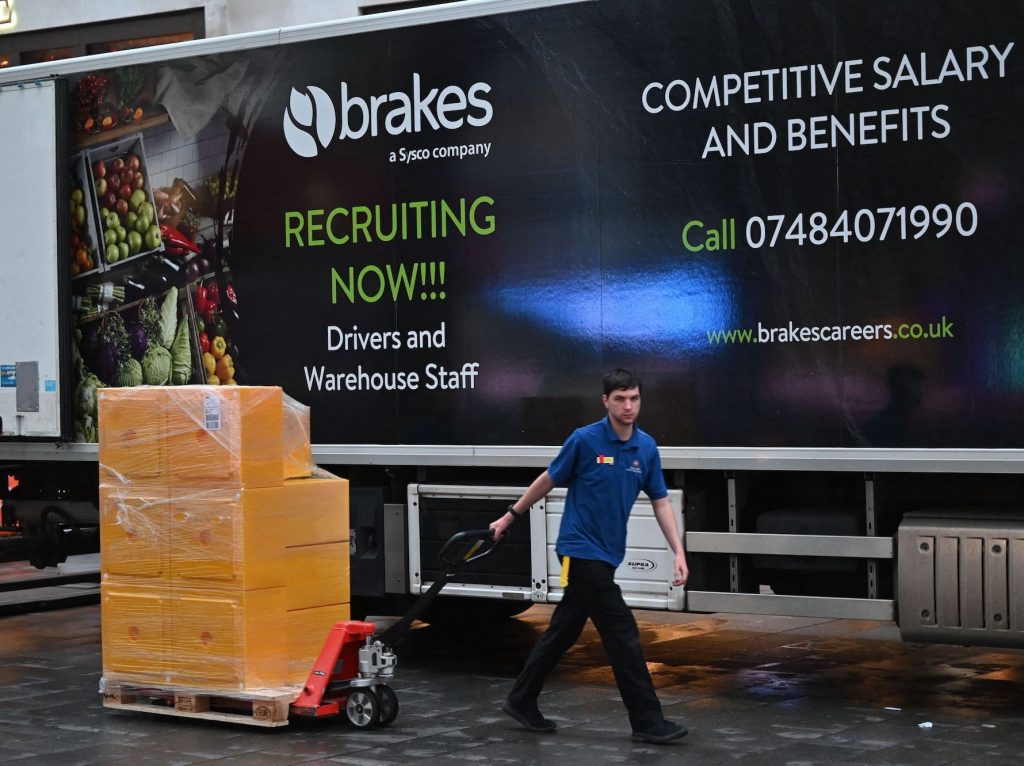
JUSTIN TALLIS / Contributor via Getty images
- A supply chain director told the BBC that half of his firm's new starters left for other jobs.
- A labor shortage means competition for workers is fierce in many industries.
- Mark Jenkins, of food wholesaler Brakes, said the company had raised wages by up to 20%.
A food wholesaler that has raised wages by up to 20% to attract new staff says that for every two people it hires, only one ends up staying because of competition for workers during a labor shortage.
Mark Jenkins, a supply chain and operations director at UK food wholesaler Brakes, told the BBC on Tuesday that retaining staff in the current market was a "problem." Brakes had increased wages by between 15% and 20% in some parts of its business to attract staff and was paying retention bonuses – these costs would eventually be passed onto consumers, Jenkins said.
"For every two people we hire, only one person stays, because there are other jobs in the market," Jenkins said.
He said the industry was under "extreme" pressure.
"Everything is making it really difficult for us to service our customers," he said.
Insider asked Brakes for further comment, but did not immediately hear back.
Businesses in multiple sectors across both the UK and the US say they're struggling to recruit staff because of a labor shortage. Some bosses blame a lack of desire to work. Workers, on the other hand, say they're using the competitive labor market to move into higher paying, more desirable roles.
Jenkins spoke on the same day that the UK published its latest jobs and vacancies report.
Vacancies hit a record high of 1.1 million between July and September, according to the latest data released by the Office of National Statistics - an increase of 318,000 compared to pre-pandemic levels.
In the US, job openings dropped to 10.4 million from 11.1 million in August, according to the latest JOLTS data.
Economists say a number of mismatches between the expectations of employees and of workers are causing the shortage to roll on.
Marty Walsh, the US labor secretary, told Insider that COVID-19 fears were also keeping people away.

